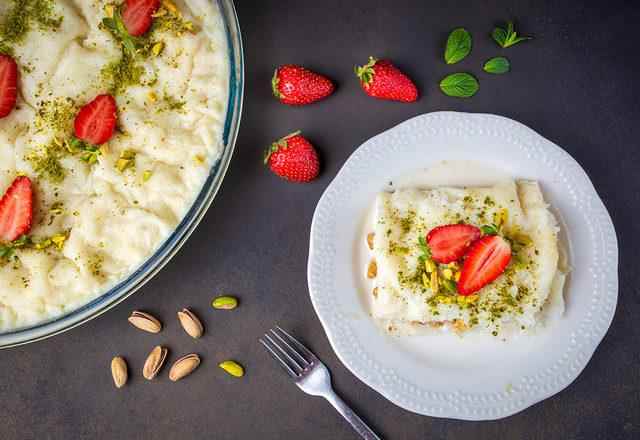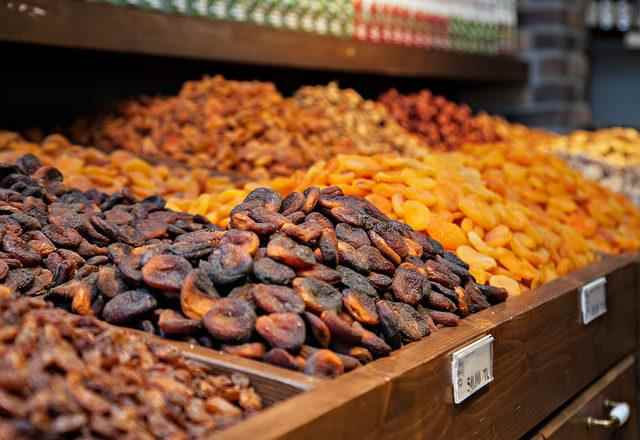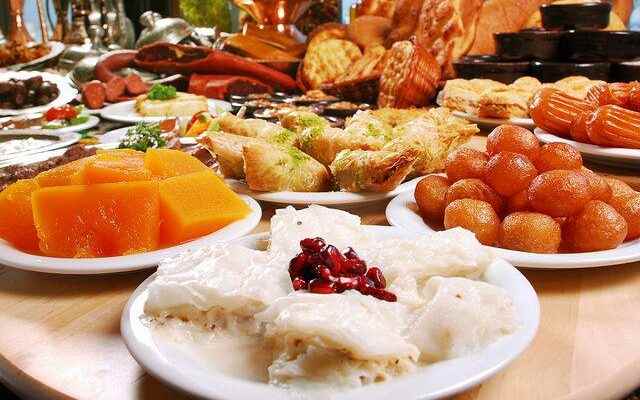Eating a healthy and balanced diet during Ramadan is important for staying vigorous and maintaining your health throughout the day. You may have made it a habit to eat dessert with tea or coffee after iftar. Although desserts with syrup are very delicious, they have a very negative effect on our body during Ramadan. Nutrition and Diet Specialist Bahtınur Yılmaz, who warns about the consumption of sweets in Ramadan, said, “It would be more appropriate to prefer milky desserts or fruits after 1-2 hours instead of heavy sherbet desserts after iftar. In this way, weight control can be achieved by having a lighter meal.
LOW BLOOD SUGAR CREATES SWEET CRISES
Emphasizing that the consumption of sweets increases during Ramadan compared to other months, Nutrition and Dietetic Specialist Bahtinur Yılmaz from İSÜ Medical Park Gaziosmanpaşa Hospital recommended that those who want to consume sweets after iftar limit the consumption of sugary products such as jam, honey and molasses in the sahur. Emphasizing that it is normal to experience sweet crises due to low blood sugar due to long hours of hunger in Ramadan, Nutrition and Diet Specialist Dyt. Yılmaz said, “If you don’t have diabetes, you can consume sweets every other day, with more milk, without overdoing it.”
SWEET CONSUMPTION SHOULD BE 1-2 PORTIONS A WEEK
dit. Bahtınur Yılmaz said, “If we have diabetes or are trying to lose weight; We should limit our sweet consumption to 1-2 servings per week. On other days, after sahur and iftar, we can make snacks by adding fresh and dried fruits and nuts as a snack.”
YOU CAN PREFER MILK AND FRUIT DESSERTS

Dyt underlined that instead of applying strict prohibitions in Ramadan, everyone should pay attention to nutrition by following portion control and paying attention to their current chronic diseases. Yilmaz said:
“During the month of Ramadan, instead of sweets with syrup and dough after iftar, you can choose lighter desserts such as milk desserts, fruit desserts, gullaç, and aşure after 1-2 hours. If you have an extreme sweet craving right after iftar, you can suppress this craving with a few dried figs or dried apricots. Since we will not be able to drink water during the long hours we are fasting, we should also take care to consume an average of 2-2.5 liters of water after sahur, iftar and after iftar. Those who consume sweets frequently should pay more attention to their water consumption.
MAKE YOUR DESSERTS YOURSELF AT HOME
Dyt stated that the most important point to be considered in sweet consumption is to prefer milky desserts that we make at home and whose content we know, rather than buying ready-made. Yılmaz said, “Sorbet desserts can disturb us at night as they are heavier in terms of content and can cause us to be more thirsty during the day because they are more sugary. In addition, desserts containing syrup and dough can cause you to take more calories at once, which can lead to weight problems. However, even if you consume low-calorie desserts, limit your consumption of sweets and avoid sweets every day.

IF YOU WANT TO EAT SWEET, ORGANIZE YOUR DIET PROGRAM
Stating that sweet lovers can also consume sweets such as pumpkin, quince or apple dessert with low sugar during Ramadan, Dyt said. Yılmaz said, “If you want to consume dessert in Ramadan, you can reduce your right to 1 glass of milk, 1 slice of bread, 1 medium fruit from your diet program; You can consume 1 portion of milk dessert, 1 portion of fruit dessert or 1 portion of gullaç once a week.
